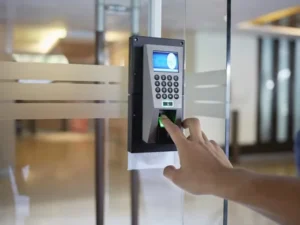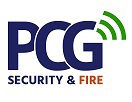
Electronic locks have become a cornerstone of security for commercial businesses in Land O Lakes. As technology continues to evolve, so do the options available for safeguarding your premises. This article will delve into the intricate world of electronic locks, exploring their types, benefits, and installation procedures, among other crucial factors to consider.
Understanding Electronic Locks
The Basics of Electronic Locks
Electronic locks utilize advanced technology to enhance security in commercial settings. Unlike traditional mechanical locks, which operate using a physical key, electronic locks can be accessed through keypads, mobile apps, biometric scans, or RFID cards. These mechanisms not only provide enhanced security but also offer convenience in managing access points.
The core function of an electronic lock is to control entry to a designated area. When the correct access method is used, a signal is sent to the locking mechanism to disengage the lock. This allows for a streamlined entry process, making it ideal for businesses that require frequent access by employees or clients. Additionally, many electronic locks are designed with fail-safe features, ensuring that in the event of a power outage or system failure, access can still be granted through alternative means, such as a backup key or emergency override system.
Benefits of Using Electronic Locks
The adoption of electronic locks presents numerous advantages for commercial businesses. One of the most significant benefits is the increased level of security. Unlike traditional locks, electronic options are often more resistant to picking, bumping, or tampering. Furthermore, many electronic locks incorporate encryption technology, making it exceedingly difficult for unauthorized users to gain access even if they manage to obtain a code or card.
Another notable advantage is the convenience of access control. Business owners can easily update access permissions, allowing them to grant or revoke access to specific individuals without needing to change physical keys. This is particularly advantageous when managing a large workforce or dealing with frequent staff turnover. In addition, many electronic lock systems can be integrated with existing security systems, such as alarms and surveillance cameras, providing a comprehensive security solution that enhances overall safety.
Moreover, electronic locks can provide valuable data analytics. Many systems come with monitoring capabilities to track who accessed a building and when, aiding in maintaining safety and accountability within your organization. This data can be invaluable for identifying patterns of access, which can help in optimizing staffing and improving security protocols. Some advanced systems even allow for remote access management, enabling administrators to monitor and control entry points from anywhere, making it easier to respond to security concerns in real-time.
Types of Electronic Locks for Businesses
Keyless Entry Systems
Keyless entry systems are among the most popular electronic locks in commercial settings. They often operate with a keypad where users enter a unique code to gain access. Keyless entry enhances security by eliminating the risk of lost keys and is suitable for both main entrances and restricted areas within a facility.
Furthermore, these systems can be programmed to allow temporary access, making them valuable for managing visitors or contractors. Adjusting access codes is relatively simple, ensuring security protocols can be updated quickly and efficiently.
Biometric Locks
Biometric locks utilize fingerprint recognition or facial recognition technology to grant access. This type of lock is particularly beneficial for sensitive areas needing high-security measures. The unique biological traits used as access points make it nearly impossible for unauthorized personnel to gain entry.
While initially more costly than other electronic lock options, the long-term benefits in terms of enhanced security and reduced risk of unauthorized access often justify the investment.
Card Reader Locks
Card reader locks permit access through RFID-enabled cards or key fobs. Users simply tap their card against the reader, and the lock disengages, allowing entry. This method simplifies access management, especially in businesses that have large numbers of employees.
Card systems can be integrated with access control software, allowing administrators to monitor and modify access rights remotely. This ease of management makes card reader locks an appealing choice for many commercial enterprises.
Choosing the Right Electronic Lock for Your Business
Assessing Your Security Needs
When selecting an electronic lock for your business, it’s crucial to assess your specific security needs. Factors to consider include the nature of your business, the value of the items being protected, and the potential risks associated with unauthorized access.
A comprehensive risk assessment will help identify vulnerabilities within your existing security measures and determine which electronic lock systems can best mitigate these risks. Engaging a security consultant can provide valuable insights during this evaluation process.
Budget Considerations
Budget considerations play a vital role in the decision-making process for electronic locks. While it might be tempting to opt for the least expensive option, it is essential to consider the long-term costs, including potential repairs, maintenance, and updates required over time.
Investing in high-quality electronic locks may incur higher initial expenditures but can lead to significant savings in the long run through enhanced security and reduced risk of theft or damage.
Maintenance and Durability
Another important aspect to evaluate is the maintenance and durability of electronic locks. Various brands and models exhibit different levels of resistance to environmental factors, which can affect longevity. It’s advisable to choose locks made from high-quality materials and those that are rated for commercial use.
Regular maintenance is key to ensuring the functionality of electronic locks. Some manufacturers offer warranties and service plans, which can be beneficial in maintaining the effectiveness of your security system over the years.
Installation Process of Electronic Locks
Professional Installation vs DIY
The installation process for electronic locks can vary based on the type chosen. While some business owners may consider a DIY approach, hiring a professional locksmith is generally recommended, particularly for complex systems.
Professional installation ensures that the locks are correctly integrated with existing security measures and equipped with appropriate software. Moreover, professionals can offer advice on system configuration to optimize security.
Necessary Equipment and Tools
If you decide to proceed with a DIY installation, specific tools will be necessary, including drills, screwdrivers, and possibly additional electrical components, depending on the lock type. It’s vital to have access to the installation manuals and guides to ensure proper installation.
Before starting, verify whether the chosen electronic lock is compatible with your door types. Consulting the manufacturer’s instructions can save time and prevent complications during the installation process.
Troubleshooting Common Electronic Lock Issues
Dealing with Power Outages
One common issue businesses may face with electronic locks is power outages. Many electronic locks have backup battery systems, but it is essential to routinely check and maintain these batteries to ensure they are functional.
In the event of a power failure, familiarizing yourself with the manual override options offered by your electronic lock system can streamline the process of regaining access without compromising security.
Addressing Technical Glitches
Technical glitches can also pose challenges for electronic lock users. Issues may arise from software malfunctions, hardware failures, or connectivity problems if the locks are connected to a central access system.
Maintaining open communication with your electronic lock provider is crucial for addressing these issues. Many manufacturers offer customer support and troubleshooting guides to help users resolve common problems effectively.
In conclusion, choosing and implementing electronic locks for your commercial business in Land O Lakes involves understanding various lock types, assessing security needs, and evaluating long-term investment returns. With the right electronic lock system in place, businesses can enhance their security posture significantly while enjoying the convenience of modern access technologies.
Ready to elevate the security of your commercial business in Land O Lakes with state-of-the-art electronic locks? Look no further than PCG Securities & Fire Inc, your trusted partner in security and fire technologies. Our expertise in strategic integrations and commitment to long-lasting, low-risk solutions make us the ideal choice for your security needs. From initial consultation and design to installation and comprehensive training, our team is equipped to support your project, no matter the size or complexity. Experience the benefits of an integrated access control system, enhanced with VMS, high-resolution security cameras, and cloud-based systems for ultimate peace of mind. Don’t just take a step forward in securing your business—leap into the future with PCG Securities & Fire. Contact Us! today to start your journey toward advanced security and transparency.
